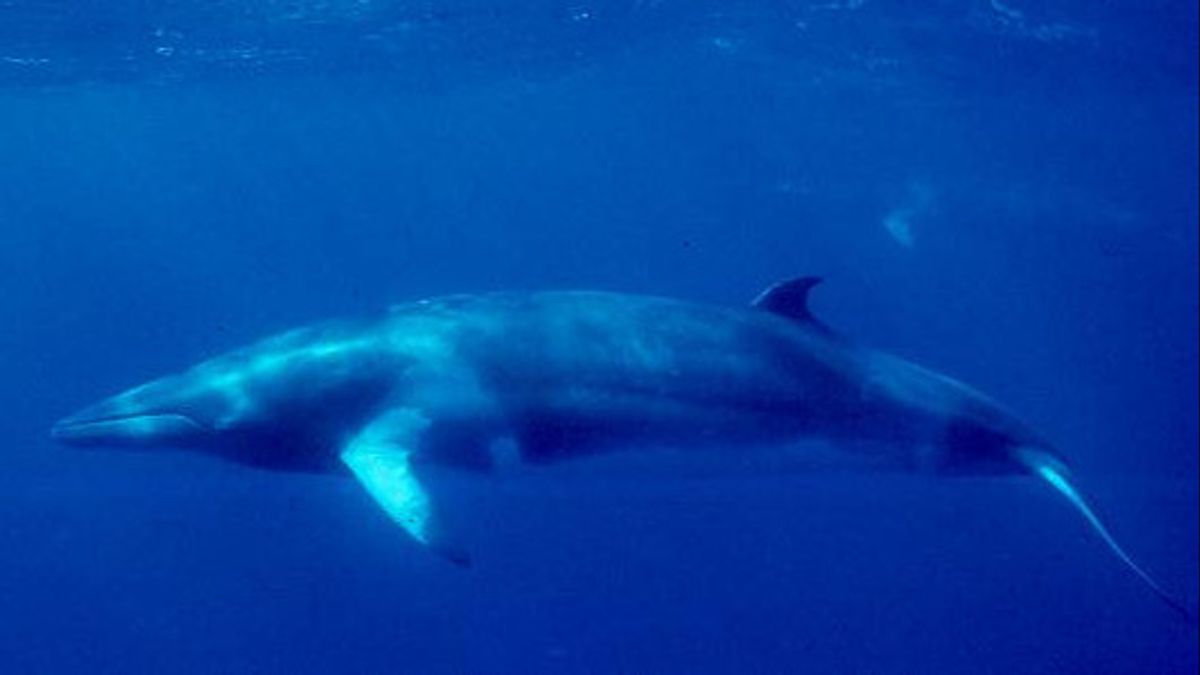JAKARTA - On March 31, 2014, the UN International Court of Justice (ICJ) ordered Japan to end its whaling program in Antarctica. The decision was made thanks to Australia suing Japanese whaling in May 2010.
Australia says the hunting program is not scientific research, as the Japanese government claims. Launching The Guardian, Australia clearly said Japan was disguising commercial whaling through the guise of research.
Responding to the ICJ's decision, Japan said it would comply with the decision. But the Japanese expressed "regret and are deeply disappointed by the decision." The ICJ decision is considered legally binding.
At the hearing that day, Presiding Judge Peter Tomka said the court had ruled, by 12 to four, that Japan should revoke all permits and licenses for whaling in Antarctica. Japan has reportedly caught about 3,600 minke whales since its program began in 2005, with limited scientific results.
"The evidence does not establish that program design and implementation are reasonable in terms of the objectives set," said Tomka.
"The court concluded that the special permission granted by Japan for the assassination, retrieval and treatment of whales in connection with Jarpa II was not for scientific research purposes," he added.
Tomka then immediately placed his orders on Japan to stop the whaling program immediately. Japan signed a moratorium on whaling in 1986.
Even so Japan continued whaling in the northern and southern Pacific, under various provisions that opened up gaps in scientific research. Norway and Iceland rejected the provision and continued commercial whaling.
Enemy of two friendly countriesJapan has clashed repeatedly with Australia and several other Western countries. The Japanese whaling is said to be part of conservation.
However, in Japan, slaughtered whale meat is sold commercially. They argue that the minke whale and a number of other species are abundant.
"The myth that this hunting is scientifically can now be brushed aside for good," said Willie MacKenzie, a spokeswoman for Greenpeace UK.
"We urge Japan to comply with this decision and not try to continue hunting whales through the newly discovered loopholes."
Noriyuki Shikata, spokesman for the Japanese delegation to the ICJ said it was disappointed by the court's decision. But he assured Japan will abide by "as a country that attaches great importance to the international legal order and the rule of law as the basis of international society."
"In terms of future action, the people in Tokyo will look into it. But we have made it clear our position that we will comply with the decision."
Shikata said the decision would not affect the bilateral relations between Japan and Australia. Shikata said, Japan and Australia are strategic economic partners.
The relationship between the two countries is close to the same values and interests. It is therefore important to ensure that the differences between the two countries regarding whaling do not affect Japan-Australia relations.
"We are referring to differences in culture and food traditions, but this case is about the legality of the program under the whaling convention," said Shikata.
"The court ruling refers, for example, to the lack of a scientific basis for the sample. It's not about cultural differences."
* Read other information about WORLD HISTORY or read other interesting writings from Putri Ainur Islam.
TODAY'S HISTORY OthersThe English, Chinese, Japanese, Arabic, and French versions are automatically generated by the AI. So there may still be inaccuracies in translating, please always see Indonesian as our main language. (system supported by DigitalSiber.id)









